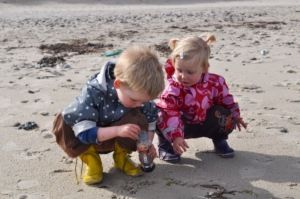News
Denmark one of the world’s best countries to raise a family
This article is more than 3 years old.
However, it’s the worst in the Nordics, as the region took the top five spots in the ranking!

Denmark among the world’s best for raising a family (photo: pxhere.com)
Denmark is one of the best countries in the world to raise a family, according to a ranking compiled by William Russell that took into account safety, the affordability of childcare, happiness, health, education and parental leave.
However, it lags behind its Nordic cousins Iceland, Sweden, Finland and Norway, which took the top four places in the survey. The Netherlands, equal fifth with Denmark, was the top-ranked country from outside the region.
Could do better at health and parental leave
Denmark was let down by a comparatively poor 6 rating for health – which might surprise new arrivals to the country, who have sat at the GP or in casualty and seen how most children tend to be treated within minutes of their arrival.
Otherwise, Denmark scored all 8s and 9s – its 9 for affordability of childcare was the equal highest and testament to how the absolute majority of the Danish population can afford the heavily subsidised daycare costs.
Nevertheless, in other areas it is being left behind by its Nordic cousins. For example, in Iceland close to 90 percent of fathers take their mandatory three months’ paternity leave.
Gender equality praised
“Safety, care about human rights, environment for gender equality and a well-developed public education system are among the factors that brought Denmark to one of the best countries to raise a family list,” applauded William Russell.
It went on to praise the government for “promoting gender equality by offering an earnings-related, reasonably-priced daycare system and a very flexible parental leave policy” along with a society in which “working hours are short, and it’s perfectly okay to leave work at 3 or 4 o’clock to pick up your kids”.
Even health, despite the 6, got a good report: “There’s a good system for early childhood health. A nurse visits your home when your child is a baby. Later, there are regular checkups with a doctor. If your child has the sniffles, you can take off work and stay home with her. The first two days are paid time off.”










































